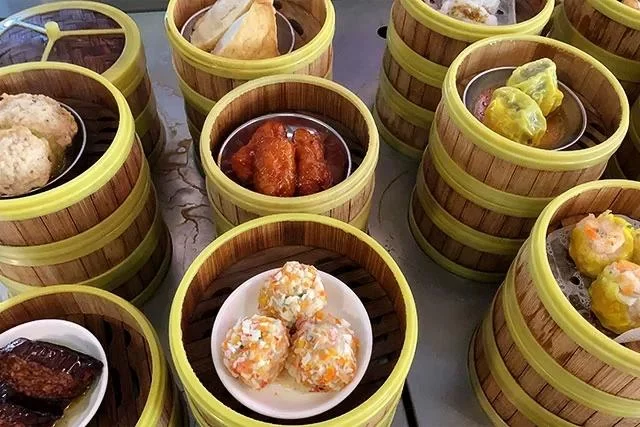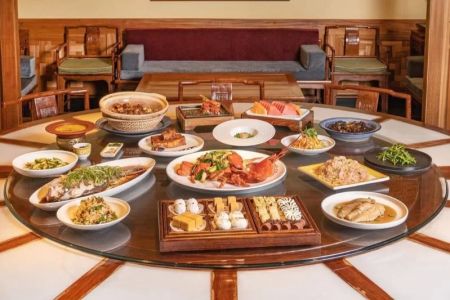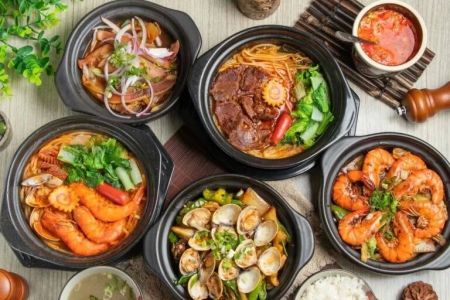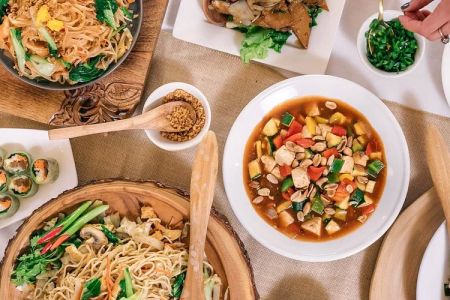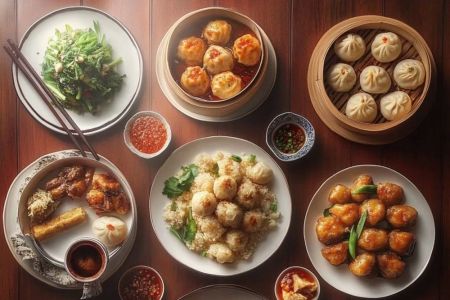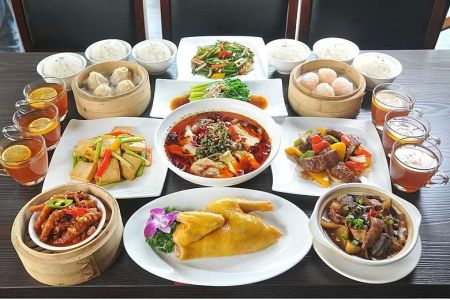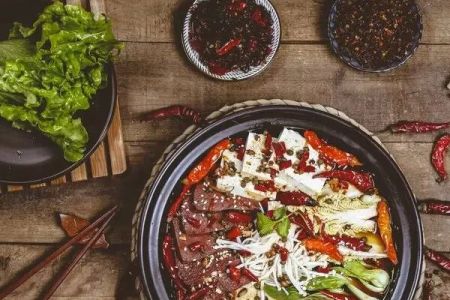Discover the World of Dim Sum: A Guide to Classic Chinese Dishes
- What is Dim Sum?
- The History of Dim Sum
- Popular Dim Sum Dishes
- How to Make Dim Sum at Home
- Where to Buy Dim Sum Ingredients
What is Dim Sum?
Dim sum is a collection of small, bite-sized dishes that are traditionally served as part of Chinese cuisine. The term "dim sum" actually means "touch the heart" in Cantonese, which reflects how these delicacies are designed to delight the senses with a variety of flavors, textures, and cooking methods. Typically, dim sum is enjoyed during breakfast or lunch in Cantonese restaurants, especially in the form of a "dim sum brunch."
Dim sum dishes range from dumplings and buns to rolls and tarts, all meant to be shared among a group. It’s often served with hot tea in a ritual known as "yum cha," which translates to "drink tea." Whether steamed, fried, or baked, each dish has its own unique flavors and preparation methods.
The History of Dim Sum
Dim sum has a long and storied history, dating back to the ancient Silk Road trade routes. The practice of enjoying tea and small snacks originated in the Guangdong province of southern China, where tea houses would offer light refreshments to travelers. Over time, this tradition evolved into the dim sum culture we know today.
Initially, dim sum was offered in small tea houses, where tea drinkers could nibble on simple snacks like steamed buns or dumplings. By the 19th century, dim sum had become a formalized part of Cantonese dining culture, with elaborate carts of dishes being wheeled around restaurants for customers to select from.
Popular Dim Sum Dishes
There is an endless variety of dim sum dishes to try, but some are particularly iconic. Here are a few favorites that you'll commonly find on a dim sum menu:
1. Siu Mai (Pork Dumplings)
Siu Mai are open-topped dumplings typically filled with ground pork, shrimp, and mushrooms, then garnished with a small piece of crab roe. These savory, steamed treats are a dim sum staple and are beloved for their juicy filling and delicate texture.
2. Har Gao (Shrimp Dumplings)
Har Gao features translucent dumpling wrappers that encase a savory shrimp filling. Known for their delicate, slightly chewy texture, these dumplings are a favorite among dim sum enthusiasts and often served with a light soy-based dipping sauce.
3. Char Siu Bao (BBQ Pork Buns)
Char Siu Bao is a fluffy steamed bun filled with sweet and savory barbecued pork. It’s one of the most popular dim sum dishes, and there’s even a variation of it that’s baked with a golden crust, known as "cha siu bao" (roast pork bun).
4. Egg Tarts
Egg tarts are sweet, custard-filled pastries, baked in a crisp shell. They are a perfect balance of sweetness and texture and are often served at the end of a dim sum meal for a delightful finish.
5. Cheung Fun (Rice Noodle Rolls)
Cheung Fun consists of steamed rice noodles rolled around a variety of fillings, such as shrimp, beef, or BBQ pork. Topped with a sweet soy sauce, this dish is both savory and satisfying, with a smooth, slippery texture that melts in your mouth.
How to Make Dim Sum at Home
While dim sum is often enjoyed at a restaurant, you can also recreate these delicious dishes at home! Making dim sum can be a fun and rewarding experience, though it requires some time and attention to detail. Here's a simple guide to get you started:
1. Gather the Ingredients
You'll need a variety of ingredients, such as shrimp, pork, cabbage, and different types of flour or dough. Some key items include bamboo steamers, dim sum wrappers, and a variety of sauces and seasonings.
2. Prepare the Fillings
Whether you're making dumplings or buns, the key to good dim sum is in the filling. For dumplings, mix your choice of protein (such as ground pork or shrimp) with seasonings, herbs, and vegetables. For buns, ensure that your BBQ pork filling is sweet and savory, with just the right amount of moisture.
3. Assemble the Dishes
Carefully assemble the dumplings, buns, or rolls, sealing the edges tightly to ensure they hold together while steaming. For a more authentic touch, try folding dumplings in the traditional Chinese pleat style.
4. Steam the Dim Sum
Use a bamboo steamer to cook your dim sum. Steaming is the most traditional way to prepare these dishes, as it helps retain the flavors and moisture. Be sure to check for doneness and serve them immediately to enjoy the freshest taste.
Where to Buy Dim Sum Ingredients
If you're ready to try your hand at making dim sum, you'll need to stock up on the proper ingredients. You can find many of the specialty items, such as dim sum wrappers, bamboo steamers, and authentic sauces, at local Asian grocery stores or online.
To make your dim sum-making experience even easier, visit Go China Rose for a variety of premium dim sum ingredients. Whether you’re a beginner or an experienced home chef, we’ve got all the tools and ingredients you need to create the perfect dim sum.
Click here to explore our selection of dim sum ingredients and start your culinary journey today!


